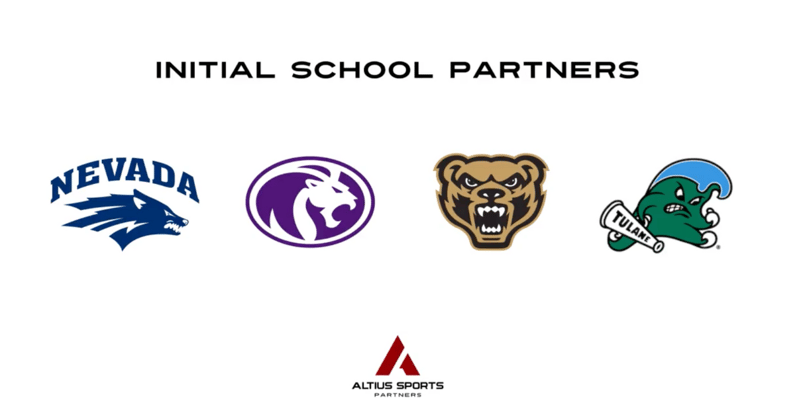Altius Sports launches ASP Academy, bringing NIL education at scale

Altius Sports Partners already advises more than 30 schools and nearly half of the Power Five about NIL.
And this week, it took steps to expand its footprint in the NIL space. Altius previously announced its general manager program this summer, which was aimed to bring the inner workings of NIL in-house to athletic departments.
Now it has launched the ASP Academy, starting with programs at Nevada, Tulane, Oakland and North Alabama. With the goal of providing NIL education and services at scale, Altius can cater to institutions that may not have the budget for a general manager program but recognize the need to provide resources and information to its athletes on NIL.
Plans are in place for the academy to eventually expand, but it is starting with four institutions.
“It aligns with our mission,” ASP VP of collegiate partnerships Brittney Whiteside told On3 in a phone call Friday morning. “We want to be able to support and help serve all athletes at all levels. And so with Academy, we’ve been able to provide our advisory and educational programming services, at scale. NIL looks different at all levels and at each institution. We’ve really been able to customize programs that meet each institution’s need.”
Whiteside will also be working closely together with Andrew Donovan, who serves as Altius’ senior vice president of collegiate partnerships.
In its workings with Power Five schools, Altius typically provides assistance on a case-by-case basis. If the athletic department is working on a major NIL initiative, ASP could be sitting in meetings and providing feedback.
The relationship with partners through the ASP Academy will look different. Each school is operating on a different budget, and Altius hopes the new academy can address every need.
Top 10
- 1New
SEC Tournament
Bracket set for SEC men's hoops
- 2Trending
Bruce Pearl
Defends Baker-Mazara after ejection
- 3
Nate Oats
Fires shot at Auburn, Baker-Mazara
- 4
Kim Mulkey
Moves spotlight away from family death
- 5Hot
Bracketology update
Alabama, Kentucky on the move
Get the On3 Top 10 to your inbox every morning
By clicking "Subscribe to Newsletter", I agree to On3's Privacy Notice, Terms, and use of my personal information described therein.
“The way that it is structured, we typically have monthly engagements with them,” Whiteside said. “So the structure of our Power Five partnerships is more of an ongoing, as-needed basis. When we say we’re providing our services at scale, it’s more of a proscribed engagement with the schools. That may be a monthly call or a strategy call.”
Biggest NIL concerns facing Altius’ institutions
As the halfway point of the second year of NIL approaches, there’s been plenty of lessons learned. NIL collectives — groups of boosters and businesses — continue to dominate the space. And athletes have been vocal about the need to receive assistance in handling the financial side, such as filing taxes.
Just this week, the NCAA issued clarifications for institutions on its interim NIL policy. A school cannot contribute to a collective, but administrators and coaches can publicly support the organization. At last count, the On3 collective database has nearly 190 organizations active at the Division I level.
For many schools, an athlete endorsement means striking a partnership with a local collective.
“If we’re working on education about what is a collective, we give them a general overview of what collectives are, what they do and provide them with that base level education,” Whiteside said.
The ASP Academy will include some sessions with athletes, ranging from a NIL 101 crash course to a conversation on how to maximize NIL potential. With its general manager program, Altius is having a constant conversation with athletes on education and what to look for in a deal.
The biggest takeaway after a year — athletes now know what Name, Image and Likeness is.
“I think the biggest thing as we’re heading into Year 2, I think some athletes just didn’t see that there was an opportunity or that NIL was a space that they could engage in,” Whiteside said. “We’re now seeing student-athletes at all levels, we’re starting to see them be more comfortable with knowing how to go about potentially getting involved in NIL.
“… I’ve seen just more student-athletes comfortable engaging in the space and knowing ways to go about it.”